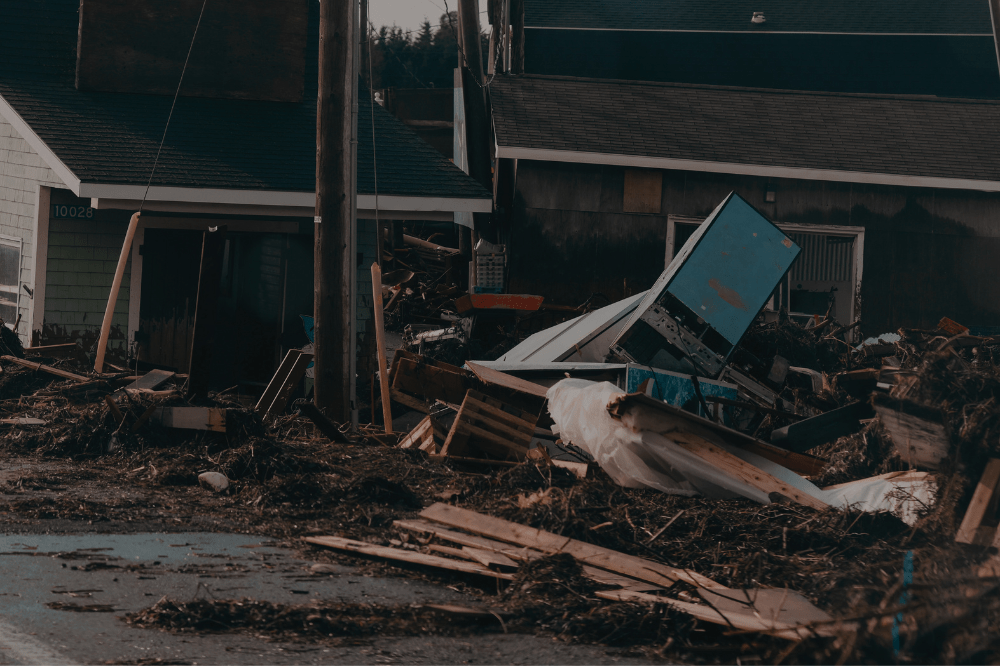As residents deal with Hurricane Helene aftermath, they also have to keep an eye out for post-storm scams and price gouging!
Several states impacted by Hurricane Helene are alerting residents to the risks of post-storm scams, and even price gouging – which occurs when businesses drastically raise the prices of goods or services, particularly during emergencies or disasters.
In North Carolina, Attorney General Josh Stein noted an increase in complaints regarding price hikes, especially in fuel, groceries, and hotel rates. Despite the state’s anti-price gouging law, which was triggered by the declared state of emergency, Stein’s office has already received over 100 complaints.
“Most stores are bending over backwards to serve their communities. But unfortunately, there’s always going to be a few folks out there who take advantage of this moment and people’s desperation to make a quick buck”, he stated via social media.
Other states hit by the storm, including Florida, Georgia, South Carolina, and Tennessee, are among the 37 states with anti-price gouging laws and have issued similar warnings, reminding residents to stay vigilant. Not all states have the same terms for protections, and 13 states do not have anti-price gouging laws.
While normal price fluctuations are acceptable, extreme hikes – such as water prices doubling or a chainsaw suddenly costing five times its usual price – are clear examples of price gouging. “You know it when you see it”, said Teresa Murray, consumer watchdog director at the U.S. Public Interest Research Group. Murray also explained that price gouging laws typically take effect during emergencies. However, while laws are in place, some people will still attempt to break them, she added.
How to Spot Price Gouging and Other Scams
If consumers notice unusually high prices that they suspect might be price gouging, Murray advised politely addressing the issue directly with the business. If the business refuses to adjust, the next step is to report it to the state attorney general. She also noted that you don’t have to buy the item to report it – a photo of the product and its price on the shelf is enough evidence.
Besides price gouging, residents should be on the lookout for other scams that often appear after disasters. Some individuals may pose as representatives of the Federal Emergency Management Agency, insurance companies, the Small Business Association or law enforcement. To avoid becoming a victim, Georgia Attorney General Chris Carr’s office recommended not sharing personal or financial details with anyone. FEMA and SBA offer free services, so if someone asks for payment, it’s likely a scam.
People should also be cautious of home repair scams. Fraudsters may offer repair services door-to-door, asking for full payment upfront or in cash, or claiming they’ll pay your insurance deductible. Before agreeing to any repairs, homeowners should check with their insurance company and verify contractors’ reputations by asking for references and checking for complaints with the Better Business Bureau.
Those looking to buy a car after the storm should also check the vehicle’s history to avoid purchasing a flood-damaged car. Murray recommended using tools like the National Insurance Crime Bureau’s VINCheck or Carfax’s flood check to ensure a vehicle hasn’t been damaged by water.
Lastly, as people look to donate to recovery efforts, state attorneys general are warning about charity scams. To make sure donations go to legitimate causes, donors can verify organizations on websites like Give.org or CharityNavigator.org. Be wary of unfamiliar websites, phone calls requesting donations, and crowdfunding campaigns that haven’t been verified.

